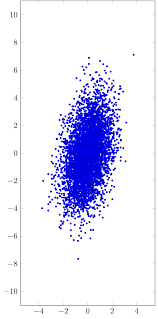- Fecha(s): 01/07/2021
- Lugar: Seminarios online CIO: http://cio.edu.umh.es/seminariosonline/
- Ponente: Maria Chiara Pagliarella, INAPP of Rome and University of Cassino and Southern Lazio

This paper deals with small area estimation of poverty indicators. Small area estimators of these quantities are derived from partitioned time-dependent area-level linear mixed models. The introduced models are useful for modelling the different behaviour of the target variable by sex or any other dichotomic characteristic. The mean squared errors are estimated by explicit formulas….
- Fecha(s): 22/06/2021
- Lugar: Seminarios online CIO: http://cio.edu.umh.es/seminariosonline/
- Ponente: Luis Orea, Universidad de Oviedo

We use a stochastic frontier analysis (SFA) approach to model the propagation of the COVID-19 epidemic across geographical areas. The proposed models permit reported and undocumented cases to be estimated, which is important as case counts are overwhelmingly believed to be undercounted. The models can be estimated using only epidemic-type data but are flexible enough…
- Fecha(s): 07/06/2021
- Lugar: Seminarios online CIO: http://cio.edu.umh.es/seminariosonline/
- Ponente: Isabel Ibarra, Responsable departamento de Innovación de Padima y Agente Europeo de Patentes

Análisis de la protección de la innovación en el campo de la Inteligencia Artificial desde una perspectiva práctica. Tendencias en la protección de la IA. Obstáculos y ventajas competitivas que nos ofrece el sistema de patentes en este campo y casos de éxito que nos ayudan a inspirarnos.
- Fecha(s): 31/05/2021
- Lugar: Seminarios online CIO: http://cio.edu.umh.es/seminariosonline/
- Ponente: Jordi Castro, Universitat Politécnica de Cataluña

Interior point methods (IPMs) have shown to behave very well in some classes of large-scale structured optimization problems. We will discuss a successful approach for block-angular structures that relies on the combination of Cholesky factorizations and preconditioned conjugate gradients for the normal equations. In the first part of the talk we will outline such specialized…
- Fecha(s): 24/05/2021
- Lugar: Seminarios online CIO: http://cio.edu.umh.es/seminariosonline/
- Ponente: Jose Luis Zofío, Facultad de Ciencias Económicas y Empresariales, Universidad Autónoma de Madrid

We contribute to the literature on the assessment of innovation systems by relating the amount of inputs available to the system and its performance through the concept of returns to scale (increasing, constant or decreasing). We study to what extent the size or scale of innovation systems relates to their performance, which is estimated through…

A project scheduling problem is defined by a set of activities, their precedence relations, and the corresponding execution times. The goal is to sequence and schedule the activities so that some performance measure of interest is optimized. Often, specific resources that exist in a limited amount are required to execute the activities. This extension of…
- Fecha(s): 26/04/2021
- Lugar: Seminarios online CIO: http://cio.edu.umh.es/seminariosonline/
- Ponente: Cristina Polo Fernández (Universidad de Extremadura)

La medición de la eficiencia en los diversos ámbitos de la economía pública ha suscitado gran interés durante las últimas décadas. Las técnicas más utilizadas en la literatura para estimar el desempeño de las unidades productivas han sido claramente los modelos de frontera no paramétricos tales como el DEA, el FDH o, más recientemente, sus…
- Fecha(s): 24/03/2021
- Lugar: Seminarios online CIO: http://cio.edu.umh.es/seminariosonline/
- Ponente: Jose Manuel Cordero, Universidad de Extremadura

El propósito del seminario es dar a conocer una nueva línea de investigación dentro de la literatura sobre el bienestar subjetivo que consiste en la estimación de medidas de «eficiencia de la felicidad»; (o déficit de felicidad) utilizando técnicas de frontera. Este enfoque innovador ha sido adoptado en algunos estudios recientes que consideran a los…
- Fecha(s): 15/03/2021
- Lugar: Seminarios online CIO: http://cio.edu.umh.es/seminariosonline/
- Ponente: Mikel Sesma

In the field of Information Fusion, and, more particularly, data aggregation, the process of aggregation deals with the problem of finding a single number that is able to represent an input of n numbers. In this framework, there is a trend towards relaxing the monotonicity conditions that are often required so that a function can…
- Fecha(s): 01/03/2021
- Lugar: Centro de Investigación Operativa-UMH: http://cio.edu.umh.es/seminariosonline/
- Ponente: Domingo Morales, Centro de Investigación Operativa, UMH

La charla introduce predictores óptimos empíricos de parámetros bivariados de área pequeña, como razones de sumas o sumas de razones, asumiendo que el vector objetivo a nivel de unidad sigue un modelo de regresión de errores anidados bivariados. Los correspondientes errores cuadráticos medios se estiman mediante bootstrap paramétrico. Varios experimentos de simulación estudian empíricamente el…











